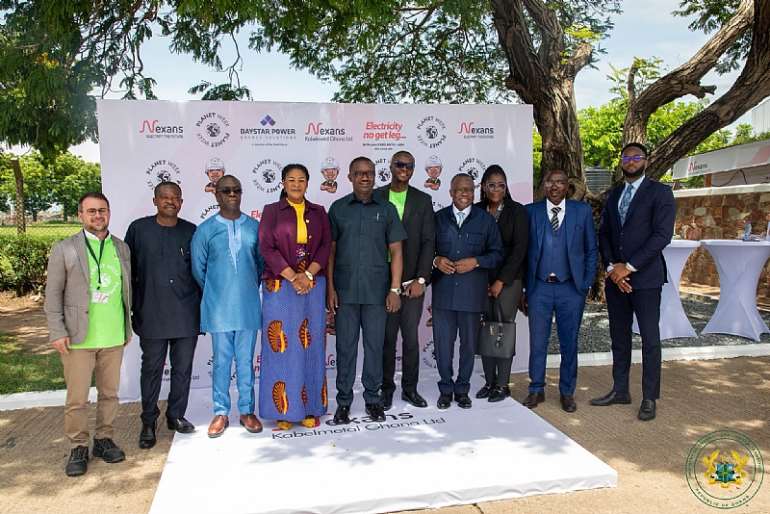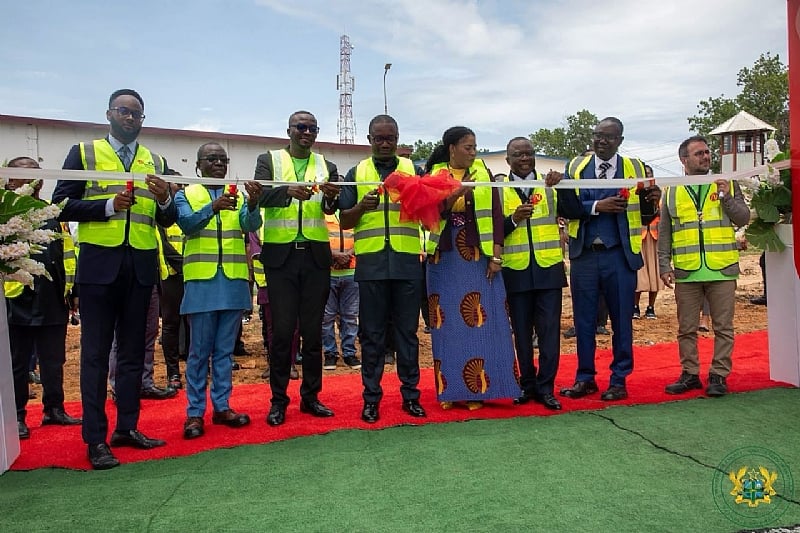In a major boost for Ghana’s renewable energy ambitions, Minister for Energy and Green Transition, John Abdulai Jinapor, on May 21, 2025, commissioned a 532-kilowatt peak (kWp) ground-mounted solar photovoltaic (PV) plant developed by Nexans Kabelmetal Ghana Limited.
The project marks a significant stride in private sector-led contributions to the country’s green energy transformation.
At the ceremony, Mr Jinapor commended Nexans Kabelmetal for embracing sustainable energy solutions and positioning itself as a leader in clean energy adoption. He described the investment as a strategic step toward reducing Ghana’s reliance on fossil fuels and building resilience in the energy sector.
“This solar installation is a powerful expression of our national vision to diversify Ghana’s energy mix and promote resilient, inclusive, and scalable renewable solutions,” he said.
The Minister emphasized the government’s continued drive to expand renewable energy infrastructure through supportive legislation and targeted initiatives. He pointed to key reforms such as the creation of the Renewable Energy Authority and the Renewable Energy Investment and Green Transition Fund. He also cited the newly launched National Net-Metering Tariff Guideline as a critical policy tool to empower solar producers and attract green investment.
Among other forward-looking measures, Mr Jinapor announced plans to roll out smart reversible meters nationwide by the end of 2025. These devices will enable homes and businesses to sell excess solar energy back into the national grid, promoting energy efficiency and further decarbonizing Ghana’s energy supply.
He also disclosed that the Scaling-Up Renewable Energy Programme (SREP) is set to launch on May 30 in Kete Krachi. The initiative will add 100 megawatts of renewable power to the national grid through mini-grids, rooftop solar installations for small businesses and public institutions, and solar home systems for off-grid communities.

The SREP’s second phase, currently under preparation, will extend clean electricity to more than 150 islands in the Afram Plains. This is in line with the government’s goal of achieving 99.8% national electricity access by 2030.
Mr Jinapor also underscored the critical role rooftop solar systems will play in making Ghanaian manufacturing globally competitive by reducing operational costs and aligning with the global shift toward sustainable production.
Positioning the new PV plant as a symbol of national determination, he remarked: “This is more than a facility — it’s a milestone in our collective resolve to build a green, sustainable economy powered by innovation and public-private partnerships.”
He further applauded Nexans Kabelmetal for its foresight and commitment to sustainable growth, adding: “The bricks of Ghana’s green future, brick by solar-powered brick.”
The Minister concluded by reaffirming the government’s support for local industry and pledged to continue enacting policies that enable Ghanaian businesses to thrive in the renewable energy space.


